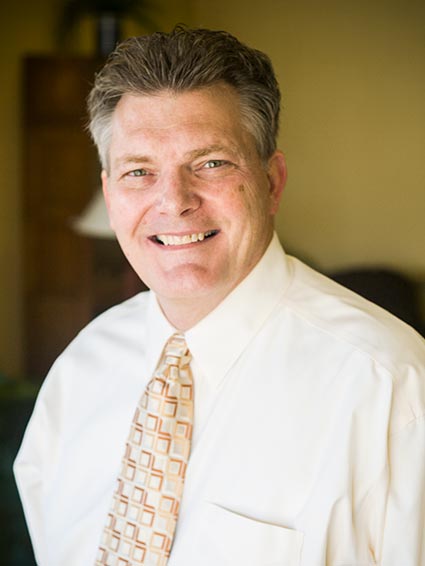This week’s author interview is with William Dennison. He is the author of Karl Marx (Great Thinkers series).
- Question #1—What inspired you to write this book, about this topic?
When the editors presented me with a choice between Plato and Marx, I chose Marx because I had, at the time, just written an article on Plato. Besides my interest in apologetics, my interest in interdisciplinary studies focuses a lot upon intellectual history. A book on Marx enabled me to combine both interests. I had worked on Marx’s philosophy of history in my Ph. D. studies, so this volume presented the opportunity to put in print the contrast between Marx and the paradigm of historical biblical revelation.
- Question #2—Other than the Bible, do you have a favorite book?
I would place Geerhardus Vos’s, Pauline Eschatology and Richard B. Gaffin, Jr.’s, Resurrection and Redemption: A Study in Paul’s Soteriology side by side since the two books have had a profound influence upon my understanding of Pauline theology and its relationship to the content of the entire canon of Scripture.
- Question #3—Do you have a favorite author? Who is it and why?
Besides Geerhardus Vos (for Biblical Theological reasons) and Cornelius Van Til (for Apologetic reasons), I have really become more and more interested in Augustine, especially his City of God. The eschatological, soteriological, and Christocentric aspects in the volume are incredibly fascinating to me.
- Question #4—Do you have a favorite movie? What is it and why?
I tend not to speak of a favorite film; rather, I tend to think of a number of works by a director and the analysis of their work. With this point in mind, I will present some of my favorite directors and name my favorite film from their corpus, accompanied by a comment, e.g., Ingmar Bergman’s, The Seventh Seal (the existentialist dilemma about the existence of God and death), Louis Malle’s, My Dinner With Andre (a captivating discussion on the search for the meaning of life), Stanley Kubrick’s, 2001 A Space Odyssey (wrestling with metaphysics in a post-metaphysical age), Terrence Malick’s, The Tree of Life (the interplay between transcendence and immanence) and Christopher Nolan’s, Inception (Descartes question about conscious reality concerning whether we are awake or are we dreaming, played out through reflections on modern philosophy and psychology).
- Question #5—Do you have a favorite quote? What is it and why?
Jean-Paul Sartre: “Man is condemned to be free; because once thrown into the world, he is responsible for everything he does.” The dialectical tension of Sartre’s comment is so overwhelming in the non-Christian world; its angst upon the human condition without Christ is apparent every day—no one can escape its crisis. In my judgment, it is one of the best descriptions of the human fallen predicament I have ever come across outside the Bible.
- Question #6—Do you have an interesting writing quirk?
I would mention two quirks: (1) I am obsessed with starting point—what Van Til calls the archimedean point of thought, and (2) I am obsessed with transcendental analysis of systems of thought. First, in my own writing I am very concerned to remain faithful to what I view to be the starting point of Christian thought—Van Til’s self-attesting Christ of Scripture. From this starting point, I attempt to analyze the starting point of any thought. My thought here is this; if you don’t start correctly, you won’t end correctly. Second, in order to remain faithful to the starting point and historic orthodox Christianity, the employment of the transcendental analysis (critique) is crucial, not only to demand that my own thought remain faithful to the truth found in Scripture but also to see where various systems of thought are contrary to the truth of biblical revelation.
- Question #7—At what time of day do you write most?
Mornings and evenings.
- Question #8—How do you deal with writer’s block?
I will put the project aside for a day or two, and just try to think through issues with which I am struggling in order to go forward. For me, a round of golf can prove helpful. Almost always, this brings freshness and good reflection to where I am.
- Question #9—Is there anything you would like to add that you have not been asked about?
As an interdisciplinarian, I have a broad interest in the humanities. From antiquity, I have had a serious interest in Plato, Aristotle, Cicero, and the rhetorical tradition. In the modern era, my focus has been philosophy, intellectual history, and theological studies, specifically, rationalism, empiricism, skepticism, existentialism, the French Enlightenment, 19th century British utilitarianism, Dutch neo-Calvinism, neo-Kantianism, liberal and higher critical Christian thought (especially Rudolf Bultmann), 19th and 20th century German thought.
- Question #10—Favorite sport to watch? Why? Favorite sport’s team?
Watching sports has definitely faded in my life; it is hard to watch when you see athletes so terribly schooled in fundamentals. But I still follow my NFL Pittsburgh Steelers and have enjoyed the NHL Pittsburgh Penguins in recent years.
- Question #11—Favorite food?
My dear wife’s homemade pasta; I have not been to an Italian restaurant that can match her pasta—the envy of all who have ever had it.
- Question #12—Favorite flavor of ice cream?
Mint Chocolate Chip or anything that has caramel in it.
- Question #13—Favorite animal? Why?
Dogs, specifically a collie because I was raised with collies as a boy.
- Question #14—What famous person (living or dead) would you like to meet and why?
The disciple/apostle John, because I view him as everything that I am not.
How can readers discover more about you and your work?
- Website:



Comments